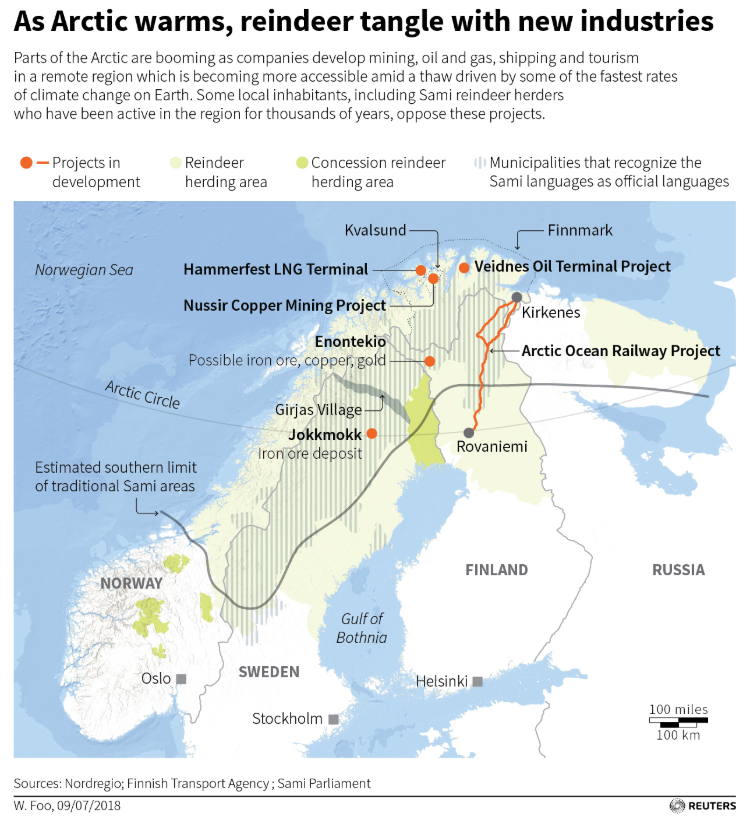Norway gives go-ahead to disputed Arctic copper mine
OSLO, Feb 14 (Reuters) - Norway's government approved on Thursday the building of a copper mine near Europe's northernmost point despite years of opposition from indigenous Sami herders and fishermen.
Norway's decision on the copper mine has been viewed as a litmus test for the Arctic, where climate change and technology are enabling mineral and energy extraction, shipping and tourism, but threatening traditional ways of life.
"The mining project will strengthen the industrial base in the north," Industry Minister Torbjoern Roe Isaksen of the centre-right coalition government said in a statement. Norway's decision on the copper mine has been viewed as a litmus test for the Arctic, where climate change and technology are enabling mineral and energy extraction, shipping and tourism, but threatening traditional ways of life.
"It will contribute positively to the local community, with new jobs and skills."
The Nussir ASA project is expected to bring jobs and investment to the Kvalsund municipality, but the digging could damage summer reindeer pastures and a plan to dump tailings in the fjord would destroy spawning grounds for the coastal cod.
"I am shocked by the government's decision. I had hoped that the Norwegian government would have heard our arguments ... They do not take us seriously," reindeer herder Nils Mathis Sara told Reuters. "We will definitely protest against this decision."
A group of reindeer herders will discuss whether to take legal action in an attempt to stop the mine, he said.
One green group, Nature and Youth, was planning a demonstration in front of the Royal Palace in Oslo on Friday when the cabinet holds its weekly meeting with King Harald.

 Minimal intrusion
Minimal intrusion
Nussir says the area contains an estimated 72 million tonnes of copper ore - Norway's largest reserve - and plans to invest more than 1 billion crowns ($115.8 million) in the mine while making only minimal intrusion in the local way of life.
Local officials gave a green light in 2012, but the project has since been stuck awaiting an operating license, with big industry players paying close attention to the process, the International Centre for Reindeer Husbandry has said.
Kvalsund, a village of painted wooden houses on the Repparfjord with 1,027 inhabitants, said the mine would boost a municipality which spends 40 percent of its income caring for the elderly as young people move away.
Herders around the Arctic in other Nordic nations, Russia, Canada and Alaska, echo the Norwegian Sami concerns, citing threats from climate change, mining, oil spills and poaching as well as thoughtless behaviour from townspeople and tourists.
Global majors, including Eni, Equinor, Gazprom, Glencore, Lukoil and Rio Tinto, are all grappling with how to square their prospecting plans with the interests of people whose views count more than in the past.
Average temperatures in the Arctic regions of the world, where some four million people live, have risen more than 2 degrees Celsius (3.6 ?F) since pre-industrial times, twice as fast as the world average, according to research for the intergovernmental Arctic Council.
Click here for a photo essay
(By Terje Solsvik and Gwladys Fouche)